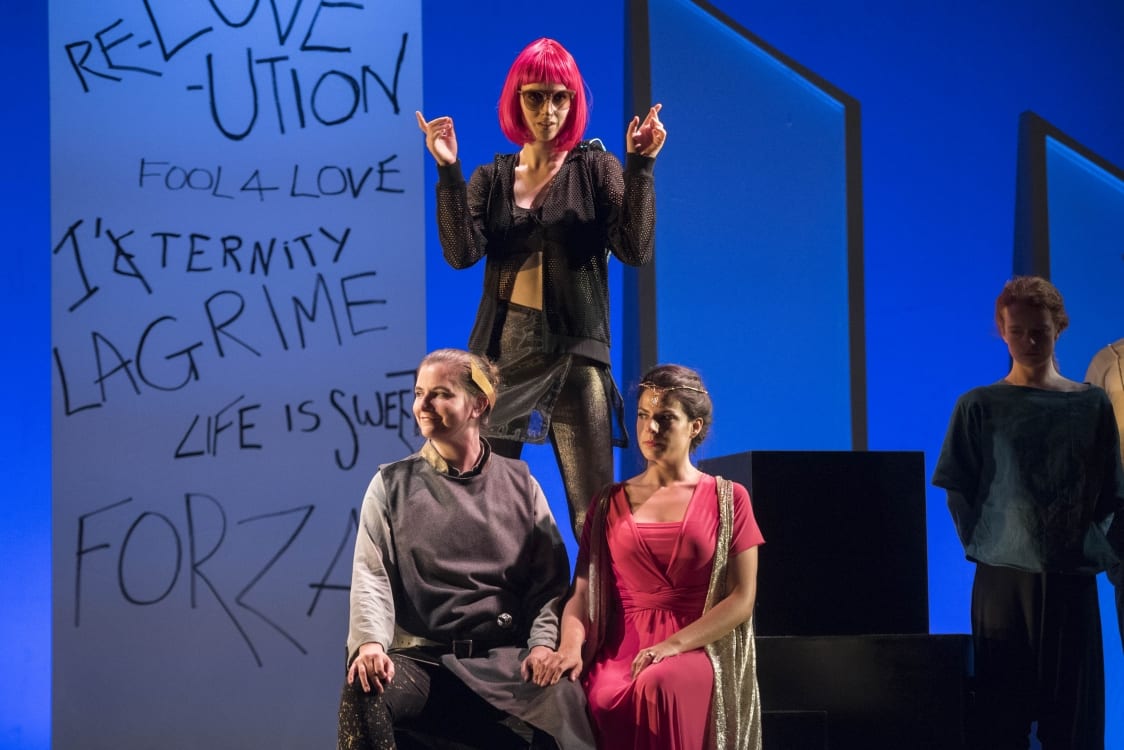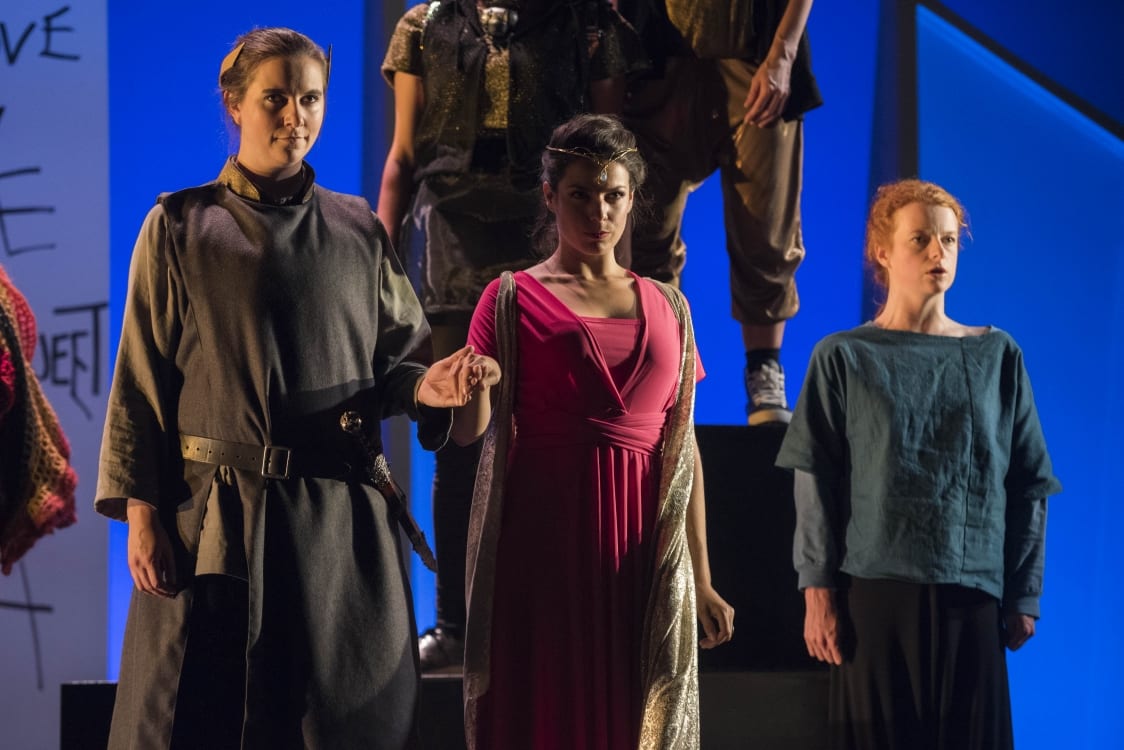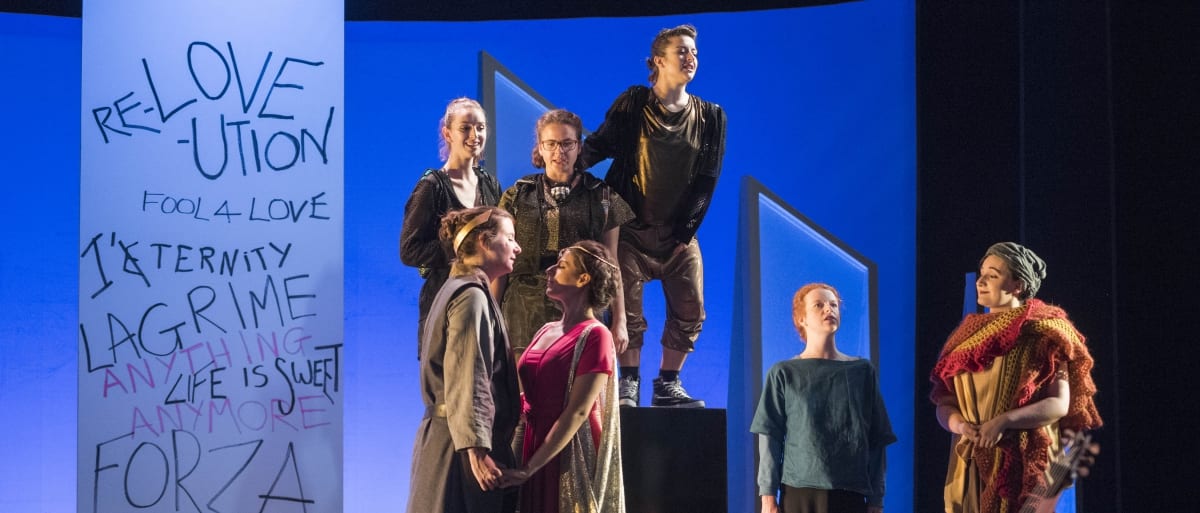In our era in which politics has become egregiously dysfunctional, and in which so many politicians seem to have lost their altruism and simply to be working from their own solipsistic ambitions for power and control, the cynical libretto of L’Incoronazione di Poppea has become more relevant to our lives than it has been for some time. The new production at Longborough, which brings one of their best seasons ever to an end, is highly cognizant of the contemporary relevance of the story while not pushing that aspect in your face. Musically, it is simply superb. Set in ancient Rome but costumed eclectically, the goddesses of Fortune (played by Anna Cavaliero), passionate and mischievous Love (Chiara Vinci) and Virtue (Isabella Cheevers) are more present and involved than usual and have some wonderful giddy and telling choreographed movement in and around the action throughout. This production is an excellent and intelligent reading of one of the first operas ever.

As always with their last production of the year, the show is cast with young professionals just at the start of their careers. They are all excellent and you feel that you are being introduced to some of the stars of tomorrow. Despite their youthfulness, the characterizations were excellent and dramatically believable. The combination of Jeremy Silver’s intense music direction and Jenny Miller’s literate and inventive staging have worked the cast into an ensemble team of considerable wit, charm and dramatic force. Transitions from one scene to another are seamless, almost filmic, and the production manages to suggest both the decadence and the cruelty of Nero’s world as well as overwhelming erotic attraction. The love music, when it comes, is stunning in itself and also ironic, given the context.

Within a very simple but serviceable stage designed by Nate Gibson, this is a clean and direct evening of theatre that is both musically pleasurable and intellectually thought-provoking.. The music is played by a Renaissance-sized original instruments guest band: the well-named, Oxford-based Instruments of Time and Truth. Their playing is exemplary and their rhythms and sonorities work well within the confines of the smallish Longborough opera house. One can almost imagine something of the impact of the original production in 1643. The singers manage to convey the complexity of the emotions and shenanigans that are going on as Nero unseats his wife Ottavia to replace her with the stunning but manipulative Poppea over the dead bodies of exiled enemies. Highlights of the evening include the death of Seneca, sonorously sung and well-acted by bass-baritone Matthew Buswell with memorable support from the ensemble. Buswell has strong vocal and dramatic presence. Ottavia (Maria Ostroukhova) managed to be both touching and ruthless, setting up the assassination of Poppea with grim ease and and definitely coming into her own with a memorable final lament as she is banished into exile. Lucy Knight stood out as Drusilla, and Beth Taylor was delightful as Arnalta. Matthew Paine was convincing as Ottone and has a voice that might just do for Nero as well if they want to switch from a mezzo to a counter-tenor. I can imagine him as being far creepier than Anna Harvey, who seemed to me to give a very romantic twist to the role of Nero and to be an Octavian in the making. Sofia Troncoso as Poppea come across as dangerous, attractive but cool as well as a cruel customer; ands Harvey and Tronscoso have voices that blend stunningly, especially in the final duets.
This was a very satisfying performance of one of the seminal operas of the art form.

